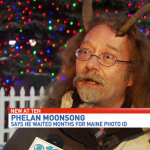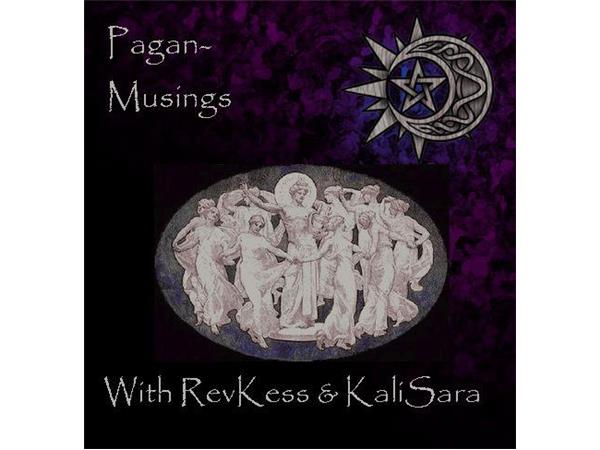Patheos has asked its bloggers to write about how religion changed in 2013. When I thought about Paganism in 2013, my mind immediately went to the many controversies in the echo chamber that is the Pagan blogosphere:
the ongoing Pagan identity crisis,
the disagreement over Pagan interfaith,
Sam Webster’s claim that Christianity and Paganism are incompatible,
the “pop-culture Paganism” brouhaha,
the ongoing polytheist “you still don’t get us” drama,
the crisis over Teo Bishop’s religious evolution,
and my own fanning the flames.
(Did I leave anything out?) And then I read an interesting recent post by Dver, where she observes that “deeper discussions about serious theological and practical religious issues, sharing our actual religious lives and inspiring each other to do more” receives practically no attention, while posts designed to be more controversial do. She concludes, “We can hardly blame those serious about their devotion when they leave the internet to focus on real-life worship, when this is all we have to offer here.” I agree.
So, instead of writing about our controversies — real and imagined — I want to highlight some posts that I read this year that I think should have gotten much more attention than they did — posts that are personal and practical, about communing with nature, with our gods, with each other, and with our Deep Selves. In choosing these posts, I was obviously limited by the fact that I only read a handful of blogs and even those I sometimes have trouble finding the time for. I’m sure there are many more examples of overlooked online writing this year. Please add other recommendations in the comments.
(These are in no particular order)
A Pagan Quaker Among Christian Friends. Cat Chapin-Bishop addresses “An Open Letter to My Christian Quaker Friends” (Part 1) about her being a Pagan “Friend-but-not-a-Christian”: ”[T]he same spiritual integrity that made me show up and keep showing up for Quaker meetings–because I was called, and I knew it–has also kept me loyal to and part of the Pagan community that formed for me a soul capable of hearing a spiritual call in the first place.” Cat’s personal story is particularly salient in light of recent debates about the intersection of Christianity and Paganism. In addition, I think the advice that Cat gives to Christian and non-Christian Quakers — to “listen in tongues” and “listen where the words come from” — is equally good advice to theistic and non-theistic Pagans trying to communicate with each other. Also check out Part 2 of Cat’s letter and her post: “A Pagan Jesus?”
So-Called “Natural” Magic. Brian Taylor’s series on animism and magic had me wanting more. In part one, “Nature Magic”, Brian begins to take aim at some contemporary Pagan conceptions of magic, beginning with Nigel Pennick’s Natural Magic, which despite naturalistic trappings turn out to be just extensions of Renaissance magic: “masculinist, will-oriented, anthropocentric … contemptuous of the dark, the feminine, the ensouled let alone embodied, the earth, and all its limits”. In part two, “Relational Magic”, Brian questions whether Susan Greenwood achieved her goal of articulating a truly “relational magic” in her her book, The Anthropology of Magic, and concludes that “her emphasis still seems to be on inner journeys rather external realities.” I would like to see more discussions which problematize the place of magic in Paganism. I look forward to Brian’s future discussions of Barry Patterson’s take on “participatory magic” and Patrick Curry’s animist perspective on divination.
Real Live Paganism. In a wonderful post entitled, “I Lost My Religion, and Gained the World”, Lupa describes how she chucked the Wheel of the Year and all the formal rituals she thought she was “supposed” to be doing as a Pagan and rediscovered the world that made her turn to Paganism in the first place: “[The spirits] kept calling me further away from ritual tools and altar setups and a set schedule of holy days, and invited me into the forests and deserts … It was there that I finally found what I’d lost so many years ago—that deep, abiding link to the nonhuman world, as well as my place as a human animal. Once I shed the religious trappings and artificial rituals, the barriers fell away, and it was just me and what was most sacred to me. … What I needed, in fact, was to toss the entire artifice away and simply immerse myself in the world of awe and wonder I’d rediscovered.” Lupa’s writing calls me to question why I do what we do and if it really is having the intended effect. Also check out Lupa’s posts: “The Breaking of the Wheel of the Year” and “Small Sacred Places”.
Being Spiritual and Religious. UU Minister, Carl Gregg, explains “Why ‘Spiritual And Religious’ Is More Radical Than ‘Spiritual But Not Religious'”. Gregg reviews the writing of Lillian Daniel, author of When “Spiritual but Not Religious” Is Not Enough: Seeing God in Surprising Places, Even the Church. Following Daniel, Gregg examines our contemporary prioritizing of individual experience in religious matters, an idea that seems to have become an unconscious axiom today for most people. While a spiritually valid principle, if it is overemphasized, it can devolves into “an unhealthy narcissism of entitlement and self-involvement.” Gregg observes that, while doubt and individualism were radical in the 16th century, they aren’t now; now they just make us middle-of-the-road Protestants. What is radical today, suggests Gregg, is not being spiritual in isolation, but undertaking the challenging task of working out who you are, what you believe, and what your place is in the universe in a diverse community. While Gregg is not Pagan and not writing to Pagans, given that the majority of Pagans are now solitaries, I think we really need to be taking another look at the idea of being spiritual and religious. Also check out Gregg’s posts: “Poetically Dwelling on the Earth as a Mortal”.
Defining Paganism Locally. Okay, so every attempt to define Paganism leads to controversy, but I couldn’t help but include Ian Corrigan’s definition of Paganism: “‘Paganism’ can, for the sake of this discussion, be defined as ‘the naturally-occurring religious impulse of a local area.’ By naturally-occurring I mean that it hasn’t been brought in by preachers or prophets, and reflects the tradition-whose-beginnings-aren’t-remembered. By ‘religious impulse’ I mean the human inclination to make relationship with a perceived ‘spiritual’ reality — with the persons and beings seen to reside in the world. by ‘local area’ I refer to the worship of beings local to the religion — the god of *that* mountain, *those* stars.” While it comes nowhere close to capturing the diversity of contemporary Paganism, it is a challenging conception of one person’s Paganism. Perhaps instead of arguing about whether a definition is sufficiently inclusive, we should be asking what individual definitions like Ian’s add to the diverse picture that is contemporary Paganism.











